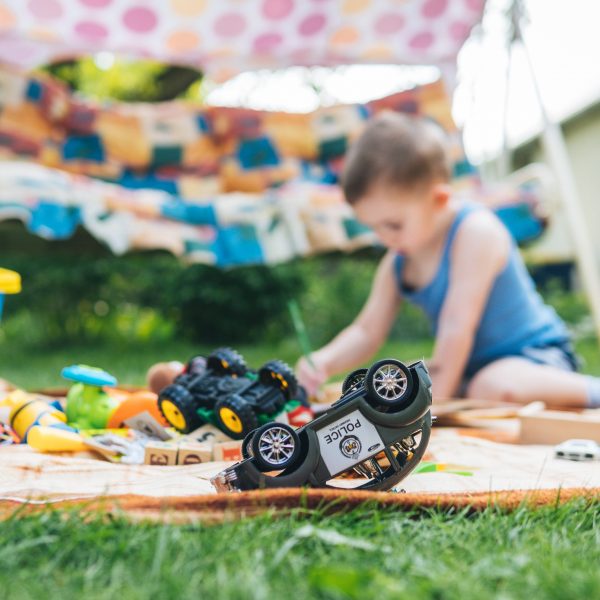Dr Brendon Hyndman speaks out on the value of play

Play time with children should not end when the school holidays do, Dr Brendon Hyndman, Senior Lecturer at the Charles Sturt University School of Education has said, urging educators and parents to make sure children have opportunities to play, both at school and at home.
Dr Hyndman said many parents rely on schools or early childhood settings to provide children with “the vital opportunities they need for play”, a misstep given than play benefits children and young people of all ages, especially as children’s lives become busier and more heavily scheduled.
The UN Convention of the Rights of the Child, he added, recognises play as one of every child’s basic rights. “What parents and educators need to consider” he added “is how to ensure a child’s right to play is adequately met, and that all children are reaping the benefits of play.”
Play is under threat from busy lives, increased time spent engaging with technology, and time and space for play in some urban areas becoming increasingly tight. As a result, some researchers have found that parents are increasingly relying on education settings to ensure their child’s need for play is met.
Given that education and care settings have a focus on play based learning, and that schools have allocated recess and lunch times, many parents “reduce the priorities for play at home because they believe their kids are getting enough play elsewhere” Dr Hyndman said.
The idea of segregating play, he continued, is detrimental. “We need to stop (seeing a) difference between play and work, or play being at home or in an education setting. Play needs to happen inside and outside of (education spaces). We also need to remember that valuable play can be messy, chaotic and involve moderate levels of risk for children”
Dr Hyndman’s tips for maximising play include:
- Value play and incorporate it into life at home and in education settings
- Dedicate a regular time for play in the home
- Create an atmosphere and expectation that play is welcomed and encouraged
- Set up a screen free hour, where all devices are off, and children engage in social, cognitive or physical play
Benefits of play:
- Improved self esteem, confidence and resilience
- Strengthened social interactions through negotiation, observation, modelling and role playing
- Physical and active play can support children to meet the national physical activity recommendations, preventing the early onset of obesity
Taking a holistic view of play, Dr Hyndman said, allows children to get maximum benefit from their play opportunities. “By incorporating the different types of play into a child’s day, and by providing opportunities for children to play at school and at home, and anywhere in between, parents and educators are taking a holistic view of play and maximising the opportunities for children to reap the benefits” he said.
To hear more from Dr Brendon Hyndman on the topic of play, listen to the Feed Play Love podcast available on Spotify.
Popular

Quality
Practice
Provider
Workforce
Reclaiming Joy: Why connection, curiosity and care still matter in early childhood education
2025-07-09 10:00:07
by Fiona Alston

Policy
Practice
Provider
Quality
Research
Workforce
Beyond the headlines: celebrating educators and the power of positive relationships in early learning
2025-07-07 10:00:24
by Fiona Alston

Workforce
Policy
Quality
Practice
Provider
Research
ECEC must change now, our children can’t wait for another inquiry
2025-07-02 07:47:14
by Fiona Alston













